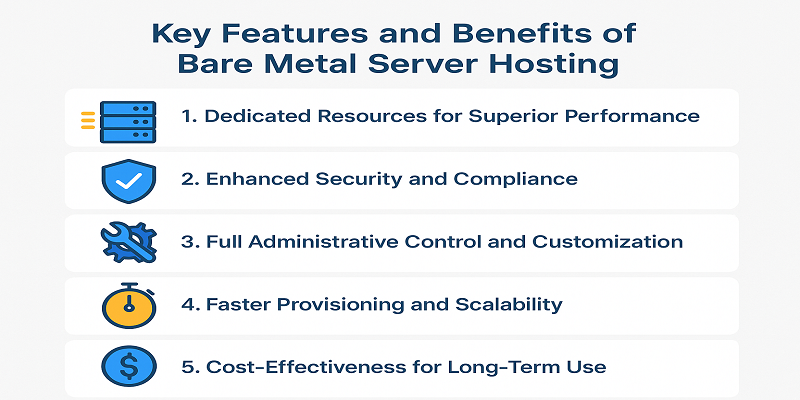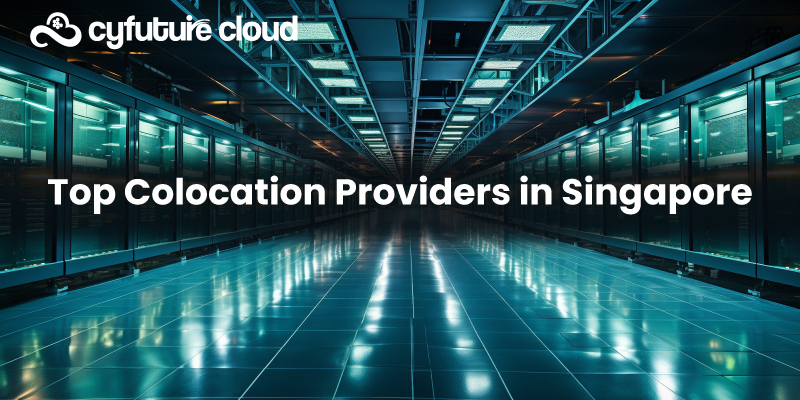Get 69% Off on Cloud Hosting : Claim Your Offer Now!
- Products
-
Compute
Compute
- Predefined TemplatesChoose from a library of predefined templates to deploy virtual machines!
- Custom TemplatesUse Cyfuture Cloud custom templates to create new VMs in a cloud computing environment
- Spot Machines/ Machines on Flex ModelAffordable compute instances suitable for batch jobs and fault-tolerant workloads.
- Shielded ComputingProtect enterprise workloads from threats like remote attacks, privilege escalation, and malicious insiders with Shielded Computing
- GPU CloudGet access to graphics processing units (GPUs) through a Cyfuture cloud infrastructure
- vAppsHost applications and services, or create a test or development environment with Cyfuture Cloud vApps, powered by VMware
- Serverless ComputingNo need to worry about provisioning or managing servers, switch to Serverless Computing with Cyfuture Cloud
- HPCHigh-Performance Computing
- BaremetalBare metal refers to a type of cloud computing service that provides access to dedicated physical servers, rather than virtualized servers.
-
Storage
Storage
- Standard StorageGet access to low-latency access to data and a high level of reliability with Cyfuture Cloud standard storage service
- Nearline StorageStore data at a lower cost without compromising on the level of availability with Nearline
- Coldline StorageStore infrequently used data at low cost with Cyfuture Cloud coldline storage
- Archival StorageStore data in a long-term, durable manner with Cyfuture Cloud archival storage service
-
Database
Database
- MS SQLStore and manage a wide range of applications with Cyfuture Cloud MS SQL
- MariaDBStore and manage data with the cloud with enhanced speed and reliability
- MongoDBNow, store and manage large amounts of data in the cloud with Cyfuture Cloud MongoDB
- Redis CacheStore and retrieve large amounts of data quickly with Cyfuture Cloud Redis Cache
-
Automation
Automation
-
Containers
Containers
- KubernetesNow deploy and manage your applications more efficiently and effectively with the Cyfuture Cloud Kubernetes service
- MicroservicesDesign a cloud application that is multilingual, easily scalable, easy to maintain and deploy, highly available, and minimizes failures using Cyfuture Cloud microservices
-
Operations
Operations
- Real-time Monitoring & Logging ServicesMonitor & track the performance of your applications with real-time monitoring & logging services offered by Cyfuture Cloud
- Infra-maintenance & OptimizationEnsure that your organization is functioning properly with Cyfuture Cloud
- Application Performance ServiceOptimize the performance of your applications over cloud with us
- Database Performance ServiceOptimize the performance of databases over the cloud with us
- Security Managed ServiceProtect your systems and data from security threats with us!
- Back-up As a ServiceStore and manage backups of data in the cloud with Cyfuture Cloud Backup as a Service
- Data Back-up & RestoreStore and manage backups of your data in the cloud with us
- Remote Back-upStore and manage backups in the cloud with remote backup service with Cyfuture Cloud
- Disaster RecoveryStore copies of your data and applications in the cloud and use them to recover in the event of a disaster with the disaster recovery service offered by us
-
Networking
Networking
- Load BalancerEnsure that applications deployed across cloud environments are available, secure, and responsive with an easy, modern approach to load balancing
- Virtual Data CenterNo need to build and maintain a physical data center. It’s time for the virtual data center
- Private LinkPrivate Link is a service offered by Cyfuture Cloud that enables businesses to securely connect their on-premises network to Cyfuture Cloud's network over a private network connection
- Private CircuitGain a high level of security and privacy with private circuits
- VPN GatewaySecurely connect your on-premises network to our network over the internet with VPN Gateway
- CDNGet high availability and performance by distributing the service spatially relative to end users with CDN
-
Media
-
Analytics
Analytics
-
Security
Security
-
Network Firewall
- DNATTranslate destination IP address when connecting from public IP address to a private IP address with DNAT
- SNATWith SNAT, allow traffic from a private network to go to the internet
- WAFProtect your applications from any malicious activity with Cyfuture Cloud WAF service
- DDoSSave your organization from DoSS attacks with Cyfuture Cloud
- IPS/ IDSMonitor and prevent your cloud-based network & infrastructure with IPS/ IDS service by Cyfuture Cloud
- Anti-Virus & Anti-MalwareProtect your cloud-based network & infrastructure with antivirus and antimalware services by Cyfuture Cloud
- Threat EmulationTest the effectiveness of cloud security system with Cyfuture Cloud threat emulation service
- SIEM & SOARMonitor and respond to security threats with SIEM & SOAR services offered by Cyfuture Cloud
- Multi-Factor AuthenticationNow provide an additional layer of security to prevent unauthorized users from accessing your cloud account, even when the password has been stolen!
- SSLSecure data transmission over web browsers with SSL service offered by Cyfuture Cloud
- Threat Detection/ Zero DayThreat detection and zero-day protection are security features that are offered by Cyfuture Cloud as a part of its security offerings
- Vulnerability AssesmentIdentify and analyze vulnerabilities and weaknesses with the Vulnerability Assessment service offered by Cyfuture Cloud
- Penetration TestingIdentify and analyze vulnerabilities and weaknesses with the Penetration Testing service offered by Cyfuture Cloud
- Cloud Key ManagementSecure storage, management, and use of cryptographic keys within a cloud environment with Cloud Key Management
- Cloud Security Posture Management serviceWith Cyfuture Cloud, you get continuous cloud security improvements and adaptations to reduce the chances of successful attacks
- Managed HSMProtect sensitive data and meet regulatory requirements for secure data storage and processing.
- Zero TrustEnsure complete security of network connections and devices over the cloud with Zero Trust Service
- IdentityManage and control access to their network resources and applications for your business with Identity service by Cyfuture Cloud
-
-
Compute
- Solutions
-
Solutions
Solutions
-
 Cloud
Hosting
Cloud
Hosting
-
 VPS
Hosting
VPS
Hosting
-
GPU Cloud
-
 Dedicated
Server
Dedicated
Server
-
 Server
Colocation
Server
Colocation
-
 Backup as a Service
Backup as a Service
-
 CDN
Network
CDN
Network
-
 Window
Cloud Hosting
Window
Cloud Hosting
-
 Linux
Cloud Hosting
Linux
Cloud Hosting
-
Managed Cloud Service
-
Storage as a Service
-
 VMware
Public Cloud
VMware
Public Cloud
-
 Multi-Cloud
Hosting
Multi-Cloud
Hosting
-
 Cloud
Server Hosting
Cloud
Server Hosting
-
 Bare
Metal Server
Bare
Metal Server
-
 Virtual
Machine
Virtual
Machine
-
 Magento
Hosting
Magento
Hosting
-
Remote Backup
-
 DevOps
DevOps
-
 Kubernetes
Kubernetes
-
 Cloud
Storage
Cloud
Storage
-
NVMe Hosting
-
 DR
as s Service
DR
as s Service
-
-
Solutions
- Marketplace
- Pricing
- Resources
- Resources
-
By Product
Use Cases
-
By Industry
- Company
-
Company
Company
-
Company
What is a Bare Metal server?
Table of Contents
- What is Bare Metal Server Hosting?
- Key Features and Benefits of Bare Metal Server Hosting
- 1. Dedicated Resources for Superior Performance
- 2. Enhanced Security and Compliance
- 3. Full Administrative Control and Customization
- 4. Faster Provisioning and On-Demand Scalability
- 5. Cost-Effectiveness for Long-Term, High-Intensity Workloads
- 6. Improved Reliability and Hardware Consistency
- 7. Ideal Foundation for Private Clouds and Virtualization
- 8. High Customizability for Specialized Hardware Needs
- Market Trends and Growth
- Why Choose Cyfuture Cloud for Bare Metal Server Hosting?
- Conclusion: Build a Future-Ready Infrastructure with Bare Metal Server Hosting
A bare metal server is a physical, dedicated server that is exclusively used by a single client, providing full access to all its hardware resources such as CPU, RAM, storage, and network connectivity without any virtualization layer or shared tenancy. Unlike virtual servers or cloud hosting, where multiple users share the same physical hardware via virtualization, bare metal servers offer direct, unshared access to the underlying physical machine, making them ideal for performance-critical and security-sensitive applications.
What is Bare Metal Server Hosting?
Bare Metal Server Hosting refers to the service model where a provider rents out these dedicated physical servers to clients, often with customizable configurations tailored to specific workload demands. This hosting type bridges the gap between traditional dedicated servers and cloud services by combining the physical isolation and performance of dedicated hardware with cloud-like provisioning and management flexibility.
Key Features and Benefits of Bare Metal Server Hosting

1. Dedicated Resources for Superior Performance
Bare metal servers allocate 100% of the underlying hardware to a single user. With no virtualization overhead or shared resource contention, they deliver predictable, high-performance computing. This ensures ultra-low latency and consistent throughput—ideal for workloads such as big data analytics, real-time cloud gaming, high-frequency trading, scientific simulations, video rendering, and AI/ML model training.
2. Enhanced Security and Compliance
Single-tenant architecture provides strong physical and logical isolation. By eliminating hypervisors and shared hardware layers, bare metal servers mitigate risks from vulnerabilities like Spectre, Meltdown, and side-channel attacks. This makes them a preferred choice for industries governed by stringent compliance standards, including healthcare (HIPAA), finance (PCI-DSS), and government or defense workloads.
3. Full Administrative Control and Customization
Users enjoy root or administrator-level access with the freedom to install custom operating systems, choose hypervisors, configure RAID setups, and fine-tune hardware parameters. This deep configurability enables organizations to build highly optimized environments tailored to their specific performance, storage, or security requirements.
4. Faster Provisioning and On-Demand Scalability
Modern bare metal providers offer automated provisioning—sometimes in as little as a few minutes—bridging the gap between traditional dedicated servers and cloud agility. This rapid deployment supports dynamic scaling, burst workloads, and hybrid cloud architectures where bare metal instances can seamlessly integrate with virtualized environments.
5. Cost-Effectiveness for Long-Term, High-Intensity Workloads
Although the initial costs are higher than virtualized hosting, bare metal servers offer predictable billing with no hidden fees associated with hypervisor licensing or shared usage. For continuous, resource-heavy applications, the stable performance and fixed monthly pricing often result in lower total cost of ownership (TCO) over time.
6. Improved Reliability and Hardware Consistency
Because each server is dedicated, performance consistency is far higher than in multi-tenant environments. Organizations can avoid the unpredictability of noisy neighbors and ensure stable application behavior—critical for real-time services, transactional systems, and customer-facing applications.
7. Ideal Foundation for Private Clouds and Virtualization
Bare metal servers serve as powerful building blocks for private cloud deployments. They support virtualization stacks like VMware, Proxmox, KVM, and Hyper-V, giving businesses the freedom to create isolated environments, testbeds, or fully managed internal cloud systems.
8. High Customizability for Specialized Hardware Needs
Bare metal hosting allows support for specialized hardware such as:
-
GPUs for AI/ML and video processing
-
NVMe SSDs for high I/O workloads
-
High-core CPUs for parallel computing
-
Custom network interfaces for low-latency operations
This hardware-level customization is often not feasible in public cloud VM instances.
Market Trends and Growth
The global bare metal hosting services market is projected to reach around $15 billion in 2025, growing at a CAGR of 15% through 2033. This growth is driven by:
- Increasing demand for high-performance, dedicated infrastructure for AI, ML, and big data workloads.
- Rising security concerns pushing enterprises toward isolated physical servers.
- Expansion of edge computing, which requires deploying servers closer to end-users to reduce latency.
- Integration of advanced technologies like NVMe storage and 100GbE networking to boost performance.
- Adoption of hybrid cloud models combining bare metal with virtualized environments for flexibility.
Major cloud providers like IBM Cloud, Amazon, Oracle, and others are actively investing in bare metal server offerings to capture this growing demand.
Why Choose Cyfuture Cloud for Bare Metal Server Hosting?
Cyfuture Cloud offers enterprise-grade Bare Metal Server Hosting designed to deliver exceptional performance, reliability, and security for modern, data-driven businesses. Our infrastructure empowers organizations to run mission-critical applications with confidence, backed by dedicated physical hardware and cloud-ready agility.
High-Performance Dedicated Servers for Demanding Workloads
Cyfuture Cloud’s bare metal servers are engineered for maximum performance, providing direct access to powerful CPU cores, high-speed NVMe storage, and premium network bandwidth. With no virtualization overhead and no resource sharing, your applications benefit from predictable performance—ideal for AI/ML workloads, big data analytics, cloud gaming, high-frequency trading, virtualization clusters, and enterprise databases.
Advanced Security for Data Protection and Compliance
Security is woven into every layer of our bare metal server framework. Cyfuture Cloud offers single-tenant isolation, hardened infrastructure, and protection from hypervisor-based threats. Our hosting platform is built to support strict regulatory requirements, making it suitable for industries such as finance, healthcare, government, e-commerce, and SaaS providers seeking assured data protection and compliance-ready environments.
Full Root Access and Flexible Configurations
With Cyfuture Cloud, you gain complete administrative control. Customize your environment with preferred operating systems, control panel options, software stacks, and storage configurations. Whether you need GPU-accelerated computing, RAID arrays, or high-memory servers, our flexible configurations allow you to tailor your infrastructure to your exact business needs.
Rapid Provisioning and Scalable Cloud Infrastructure
Our automated provisioning engine ensures your bare metal server is ready within minutes—not hours. As your business expands, Cyfuture Cloud allows seamless integration with our public, private, and hybrid cloud solutions, enabling you to scale resources, deploy clusters, or build hybrid environments with ease.
Cost-Effective Pricing with Expert Support
Cyfuture Cloud offers an excellent price-to-performance ratio with competitive server pricing models, predictable billing, and no hidden costs. Our 24/7 expert technical support ensures smooth operation, proactive monitoring, and quick issue resolution—helping you optimize your hosting environment and reduce long-term infrastructure costs.
Cloud Agility Meets Dedicated Server Power
Our bare metal hosting brings together the best of both worlds: the raw, uncompromised performance of dedicated physical servers combined with the flexibility and scalability of cloud computing. This hybrid advantage empowers businesses to innovate faster, deploy complex workloads efficiently, and maintain complete control over their IT stack.
Conclusion: Build a Future-Ready Infrastructure with Bare Metal Server Hosting
In today’s competitive digital landscape, businesses require hosting solutions that guarantee unmatched performance, strong security, scalability, and full control. Whether deploying a Linux Dedicated Server or other high-performance infrastructure, bare metal server hosting has become a cornerstone of modern IT strategies, enabling companies to meet the demands of data-intensive, latency-sensitive, and resource-heavy applications with precision.
With Cyfuture Cloud’s enterprise-ready cloud infrastructure, organizations can unlock the true potential of dedicated bare metal servers, achieving superior performance, operational continuity, and long-term cost efficiency.
Recent Post

Stay Ahead of the Curve.
Join the Cloud Movement, today!
© Cyfuture, All rights reserved.
Send this to a friend

 Pricing
Calculator
Pricing
Calculator
 Power
Power
 Utilities
Utilities VMware
Private Cloud
VMware
Private Cloud VMware
on AWS
VMware
on AWS VMware
on Azure
VMware
on Azure Service
Level Agreement
Service
Level Agreement 



















